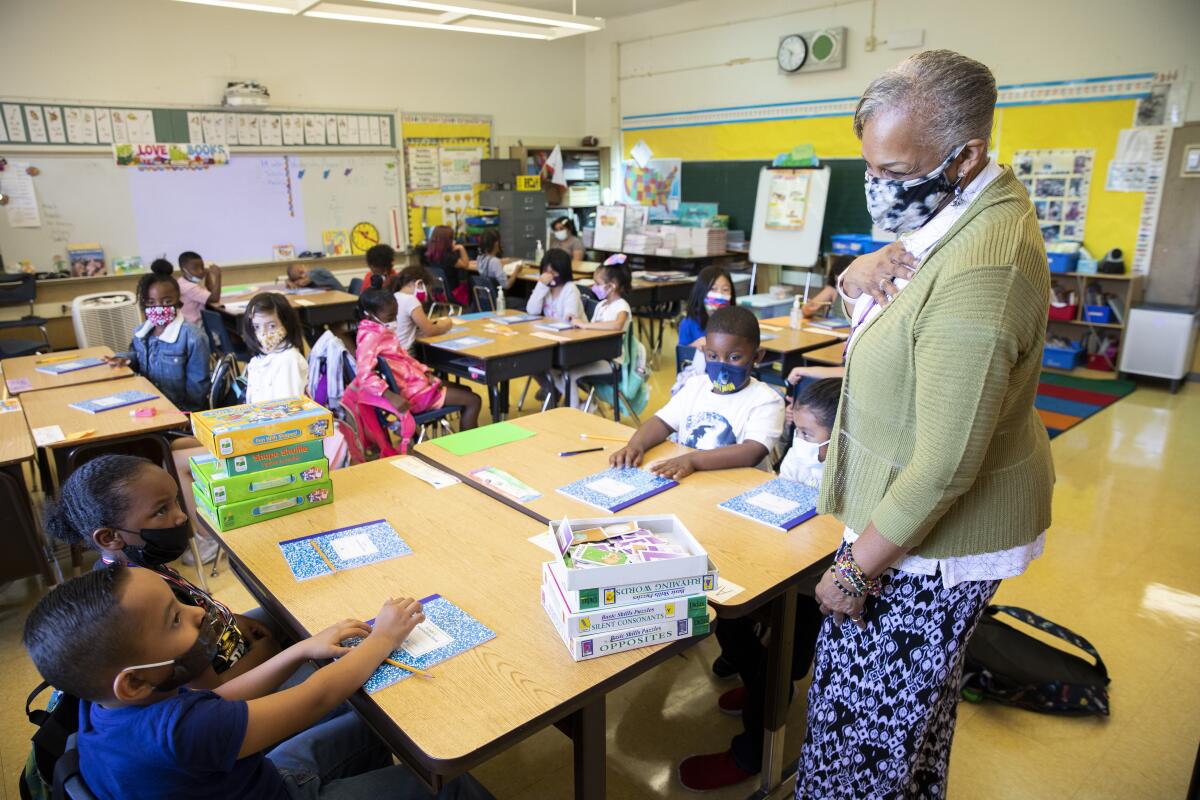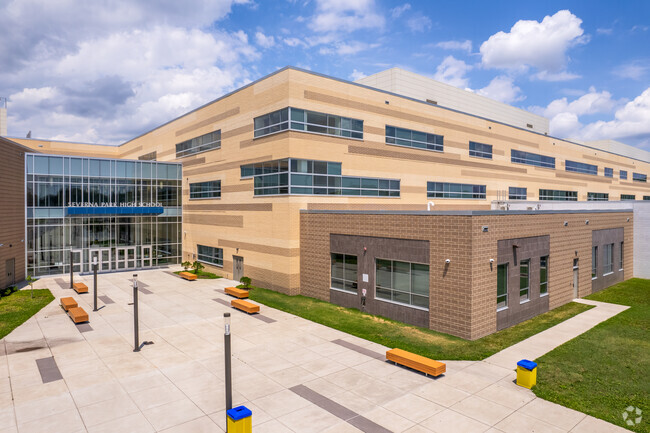The Impact of College Environments on Academic Success and Personal Health
The institution environment substantially influences both academic success and individual health, encompassing elements such as physical format, class environment, and interpersonal dynamics. The design of academic spaces, consisting of natural illumination and ergonomic furnishings, can improve pupils' concentration and convenience. Moreover, the quality of teacher-student connections and the nature of peer communications play critical roles in promoting an ambience for learning and psychological assistance. Recognizing exactly how these numerous variables interaction to shape student end results elevates important inquiries regarding maximizing academic setups for all natural advancement. Just how can schools tactically enhance these facets to much better sustain their students?
Physical Design and Layout
Exactly how does the physical design and design of a school impact scholastic success? The arrangement and visual of a college setting can substantially affect students' discovering end results.
Natural illumination and efficient ventilation systems are pivotal in improving cognitive function and decreasing absenteeism. Studies have actually revealed that classrooms with ample all-natural light improve trainee concentration and decrease sensations of drowsiness. Furthermore, ergonomic furniture customized to trainees' needs can prevent physical pain, enabling for prolonged focus and involvement in academic activities.
Accessibility to outdoor areas and visually pleasing surroundings also play an important role - Save Temecula Schools. Green spaces and properly maintained college premises supply chances for workout and mental relaxation, both of which are necessary for preserving high levels of academic efficiency. In essence, an attentively created physical setting can act as a driver for scholastic excellence, fostering an atmosphere that supports both mentor and discovering
Classroom Environment
A favorable class atmosphere is basic to accomplishing scholastic success. A setting that fosters a feeling of safety, inclusivity, and shared regard motivates trainees to involve more proactively in their discovering processes. The setting of a classroom, consisting of aspects such as lighting, noise levels, and seating plans, can substantially influence trainee concentration and motivation. A well-ventilated, well-lit class with minimal distractions can improve cognitive feature and minimize anxiety, thereby promoting much better scholastic end results.
Furthermore, the classroom atmosphere must support a culture of cooperation and open interaction. When trainees feel comfortable sharing their ideas and asking inquiries, they are much more likely to involve deeply with the product and develop crucial believing abilities - Save Temecula Schools. Peer interactions and group tasks can improve understanding by promoting and providing varied perspectives teamwork
Moreover, developing consistent routines and clear expectations can create an organized setting that allows pupils to concentrate on their studies. By lessening unpredictability and supplying a foreseeable framework, pupils can better manage their time and obligations. Inevitably, a positive classroom environment not just enhances scholastic performance but likewise adds to the general wellness of pupils, preparing them for future academic and personal undertakings.
Teacher-Student Relationships
Building on the relevance of a positive classroom atmosphere, the connections between pupils and instructors play a pivotal role in shaping academic success. A healthy and balanced teacher-student partnership cultivates a learning environment where students really feel valued, understood, and supported, which dramatically improves their inspiration and engagement. When trainees view their teachers as approachable and empathetic, they are extra most likely to get involved proactively in class and seek help when needed, adding to a much deeper understanding of the subject.

This trust enables pupils to express their concerns and concepts freely, cultivating a joint understanding environment. In essence, solid teacher-student relationships are a cornerstone of academic success, playing an essential function in both scholastic success and personal advancement.
Peer Interactions
Peer communications substantially affect academic success by forming a pupil's cognitive and social growth. Within the school setting, peer relationships offer as a foundational component for discovering and individual growth. Favorable peer communications can improve a student's motivation and involvement in academic tasks with collective knowing and mutual support. When students interact in group settings, they trade concepts, fix issues jointly, and establish essential assuming skills. Such communications cultivate a sense of belonging and area, which is essential for psychological well-being and scholastic willpower.

Reliable peer interactions likewise add to the development of necessary life abilities, such as teamwork, communication, and conflict resolution. These social competencies are essential for both academic success and personal health, highlighting the importance of cultivating favorable peer dynamics within the institution atmosphere.
Extracurricular Tasks
Engaging in after-school activities plays a critical duty in a pupil's academic success and Read Full Report individual advancement. These tasks, ranging from sports groups to question clubs, offer students possibilities to hone useful skills such as leadership, time management, and teamwork. Research continually suggests that students who get involved in extracurricular activities tend to attain greater academic efficiency. This correlation is typically credited to the organized atmosphere and the self-control needed to stabilize both academic and extracurricular dedications.
Moreover, extracurricular involvement fosters a sense of belonging and area, which is essential for personal wellness. Joining team activities allows students to build and enhance social media networks, enhancing their social and emotional knowledge. These interactions are vital for developing social skills that are beneficial in both future and academic specialist environments.
Furthermore, extracurricular tasks give a useful outlet for trainees to discover their passions and interests past the typical educational program. This expedition can result in the discovery of brand-new abilities and possible career paths, additionally inspiring trainees to engage more deeply in their academic work. To conclude, the function of after-school activities extends beyond simple recreation; they are indispensable to promoting an all natural academic experience that promotes both page scholastic success and individual development.
Conclusion
Altogether, the influence of institution environments on both scholastic success and personal wellness is profound. Thoughtfully designed physical layouts and classrooms, along with favorable teacher-student relationships and positive peer communications, dramatically enhance student inspiration and interaction. The presence of encouraging instructors can reduce tension, fostering a nurturing ambience favorable to holistic development. These components collectively highlight the importance of developing and maintaining optimal school environments for the advantage of pupils' academic and personal development.
Inevitably, a positive class atmosphere not just boosts academic efficiency but additionally adds to the general wellness of students, preparing them for future instructional and individual ventures.
